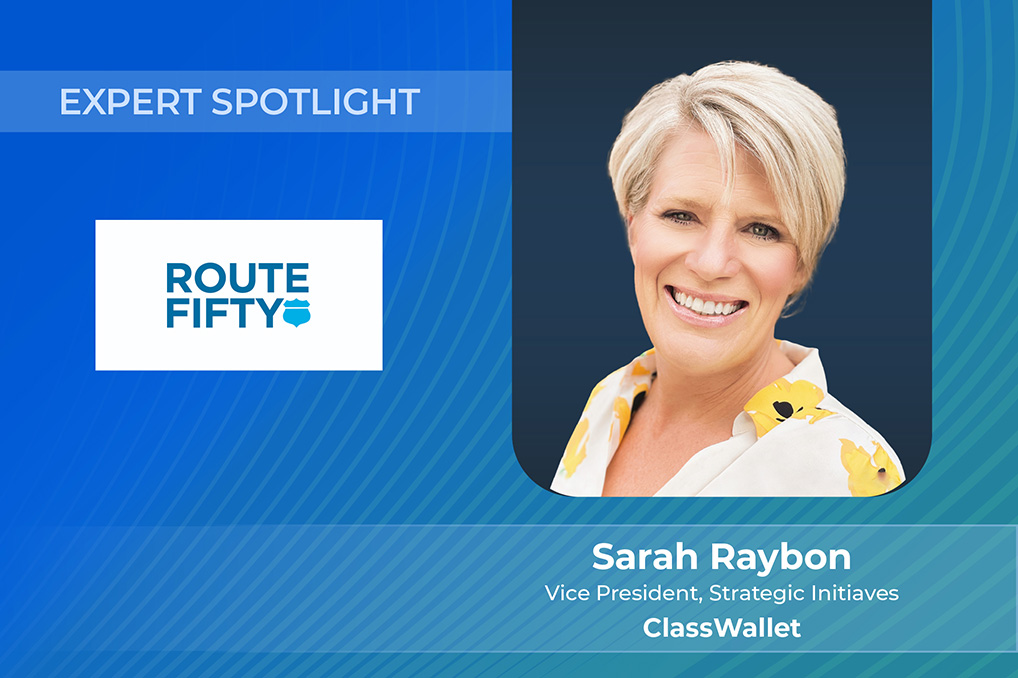From “Route Fifty” | By Sarah Raybon, Vice President of Strategic Initiatives at ClassWallet | Published June 12,
2025
Across the United States, Vocational Rehabilitation (VR) programs are facing significant financial challenges. Some states, like Minnesota, have already rolled back VR funding, while others, such as Idaho, brace for cuts due to concerns over financial accountability.
This is a concerning trend, as VR programs provide critical support to individuals with disabilities seeking meaningful employment. Reducing or eliminating these programs would have serious consequences for program participants and their communities. Without the employment services VR programs provide, fewer individuals with disabilities can find personal and professional fulfillment, meaning they are not contributing to the local economy.
In 2024, the U.S. Bureau of Labor Statistics found that, among working-age people with a disability, the unemployment rate was double that of those with no disability. VR programs help close this gap by offering career development, job placement, and financial support for training and work-related expenses.
When VR programs are at their best, the results are remarkable. As more people with disabilities enter the workforce, their communities benefit from increased tax revenues and higher spending levels. A 2024 study by Northwestern University found that for every dollar spent on VR programs, the state recoups $3.90 in tax revenue throughout a participant’s career. Additionally, the study highlighted that VR programs contribute to reduced crime rates, better health outcomes and lower dependency on public assistance programs.
Despite these benefits, VR programs face challenges in managing and utilizing available funds. In fact, over the last decade, the value of unused VR funds has risen steadily. As state and local governments across the country work to improve operations and ensure financial accountability, digital wallets present a powerful solution that can help VR programs remain a fixture in their communities.
Digital Wallets Solve Key VR Program Challenges
A digital wallet is a software-based system that securely stores payment information and allows users to easily make rule-based purchases. With built-in regulations and accessibility features, these financial management solutions address several challenges VR programs encounter on a daily basis.
One significant issue hindering VR programs’ efficiency is the administrative burden placed on staff. Manual processes — such as managing paperwork, generating purchase orders, and issuing physical checks — are time-consuming and labor-intensive. These administrative tasks often divert attention away from the core mission of VR counselors: helping participants find stable employment and making a difference in their communities. By automating payments and expense tracking, digital wallets streamline administrative processes, giving staff more time to focus on helping participants rather than paperwork.
Another common challenge is ensuring secure and timely access to funding. Many VR programs experience delays in processing and distributing funds due to strict limitations on when and how participants spend funds. Digital wallets solve this challenge; users can only make purchases within the program rules. For example, suppose a participant needs help getting to a job interview. In that case, a digital wallet can allow them to purchase gas at the pump and restrict them from buying other items available at the gas station. These controls help ensure funds are spent as intended and empower participants to utilize available funding.
Perhaps most importantly, digital wallets ensure compliance with audit and reporting requirements. The technology provides a detailed, real-time record of every transaction, which enhances transparency and makes it easier for administrators to track expenditures. In effect, digital wallets facilitate smoother audits and evaluations by clearly demonstrating program compliance with regulatory standards.
In addition to the immediate benefits of digital wallets, there are several long-term considerations that VR program administrators should consider when implementing new technology.
Recommendations for Long-Term Success
Accessibility is rightfully a core priority for VR programs, considering they support individuals with disabilities. To truly serve their participants, it’s essential for program administrators to choose secure and efficient IT solutions designed with accessibility in mind.
For example, many VR program participants may have vision or hearing impairments, meaning all digital applications should use high-contract colors and be compatible with screen readers. With accessibility features such as these, participants can quickly and easily access the financial support they need.
Adopting new technology can sometimes create unintended disruptions within an organization. To ensure VR programs can continue serving their communities throughout the implementation process, it’s crucial that VR administrators partner with digital wallet providers that offer seamless integration with existing systems, including case management and financial tracking platforms.
By implementing digital wallets, VR administrators can make more strategic use of the funding available to them. At a time when many of these vital programs are under increased scrutiny, it is more important than ever to ensure the effective and responsible use of funds.

